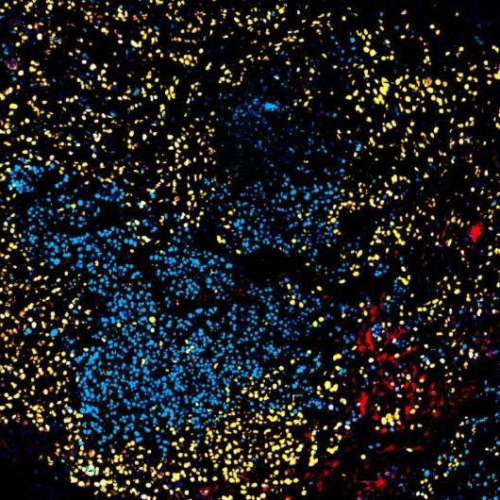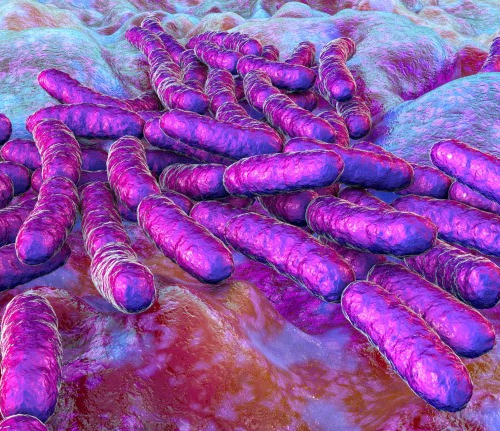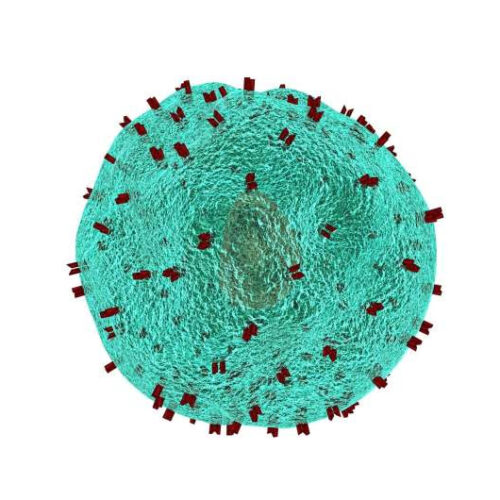Peer-Reviewed Publication University of California – San Francisco FacebookXLinkedInWeChatBlueskyMessageWhatsAppEmail Preventing the cell’s protein factories from making the notorious cancer-causing protein MYC could stop out-of-control tumors. For decades, scientists have tried to stop cancer by disabling the mutated proteins that are found in tumors. But many cancers manage to overcome this and continue growing. Now, UCSF...
Tag: <span>Cancer growth</span>
Novel study reveals how aging immune system fuels cancer growth, potentially opening new avenues for prevention
September 5, 2024 by The Mount Sinai Hospital Credit: Science (2024). DOI: 10.1126/science.adn0327A novel study by researchers at the Icahn School of Medicine at Mount Sinai addresses a critical yet under-explored question in cancer research: Why is aging the biggest risk factor for cancer? The study reveals how an aging immune system spurs tumor growth,...
Tumour-resident bacteria fuel cancer’s growth
The discovery of lactate-producing, resistance-building bacteria inside tumours could be exploited for future treatments. Nature Research Custom MediaMD AndersonBacteria within the tumour microbiome can adapt to produce nutrients that allow cancer cells to resist treatment, researchers have found.Credit: Kateryna Kon/ Science Photo Library/ Getty Images Unlike the usual energy-release pathways in normal cells, cancer cells...
Loss of Y chromosome in men enables cancer to grow
CEDARS-SINAI MEDICAL CENTER IMAGE: DAN THEODORESCU, MD, PHD, DIRECTOR OF CEDARS-SINAI CANCER, THE PHASE ONE DISTINGUISHED CHAIR CREDIT: CEDARS-SINAI MEDICAL CENTER As men age, some of their cells lose the very thing that makes them biological males—the Y chromosome—and this loss hampers the body’s ability to fight cancer, according to new research from Cedars-Sinai Cancer. The study, published...
Targeting one type of immune cell with another slows cancer growth in preclinical studies
by The Mount Sinai Hospital Credit: CC0 Public Domain A new approach to cancer immunotherapy that uses one type of immune cell to kill another—rather than directly attacking the cancer—provokes a robust anti-tumor immune response that shrinks ovarian, lung, and pancreatic tumors in preclinical disease models, according to researchers at the Icahn School of Medicine...
Cool room temperature inhibited cancer growth in mice
by Karolinska Institutet Credit: Pixabay/CC0 Public Domain Turning down the thermostat seems to make it harder for cancer cells to grow, according to a study in mice by researchers at Karolinska Institutet in Sweden. The study, published in the journal Nature, found that chilly temperatures activate heat-producing brown fat that consumes the sugars the tumors need...
Researchers discover protein complex that promotes cancer growth
GEISINGER HEALTH SYSTEM A discovery by a team of researchers, led by a Geisinger professor, could yield a potential new treatment for breast cancer. In a study published this month in Cell Reports, the team used small molecules known as peptides to disrupt a complex of two proteins, RBM39 and MLL1, that is found in breast cancer...
Study identifies never-before-seen dual function in enzyme critical for cancer growth
LARNER COLLEGE OF MEDICINE AT THE UNIVERSITY OF VERMONT Considered the most lethal form of DNA damage, double-strand breaks must be repaired to prevent cell death. In developing therapies for hard-to-treat breast and ovarian cancers in patients with BRCA gene mutations, scientists aim to identify ways to keep cancer cells from using DNA break repair...
New principle for activation of cancer genes discovered
by Karolinska Institutet Researchers have long known that some genes can cause cancer when overactive, but exactly what happens inside the cell nucleus when the cancer grows has so far remained enigmatic. Now, researchers at Karolinska Institutet in Sweden have found a new mechanism that renders one canonical driver of cancer overactive. The findings, published...
New study reveals why breast cancer spreads to the brain
Posted Today Most cancers kill because tumor cells spread beyond the primary site to invade other organs. Now, a USC study of brain-invading breast cancer cells circulating in the blood reveals they have a molecular signature indicating specific organ preferences. The findings, which appeared in Cancer Discovery, help explain how tumor cells in the blood...
- 1
- 2





